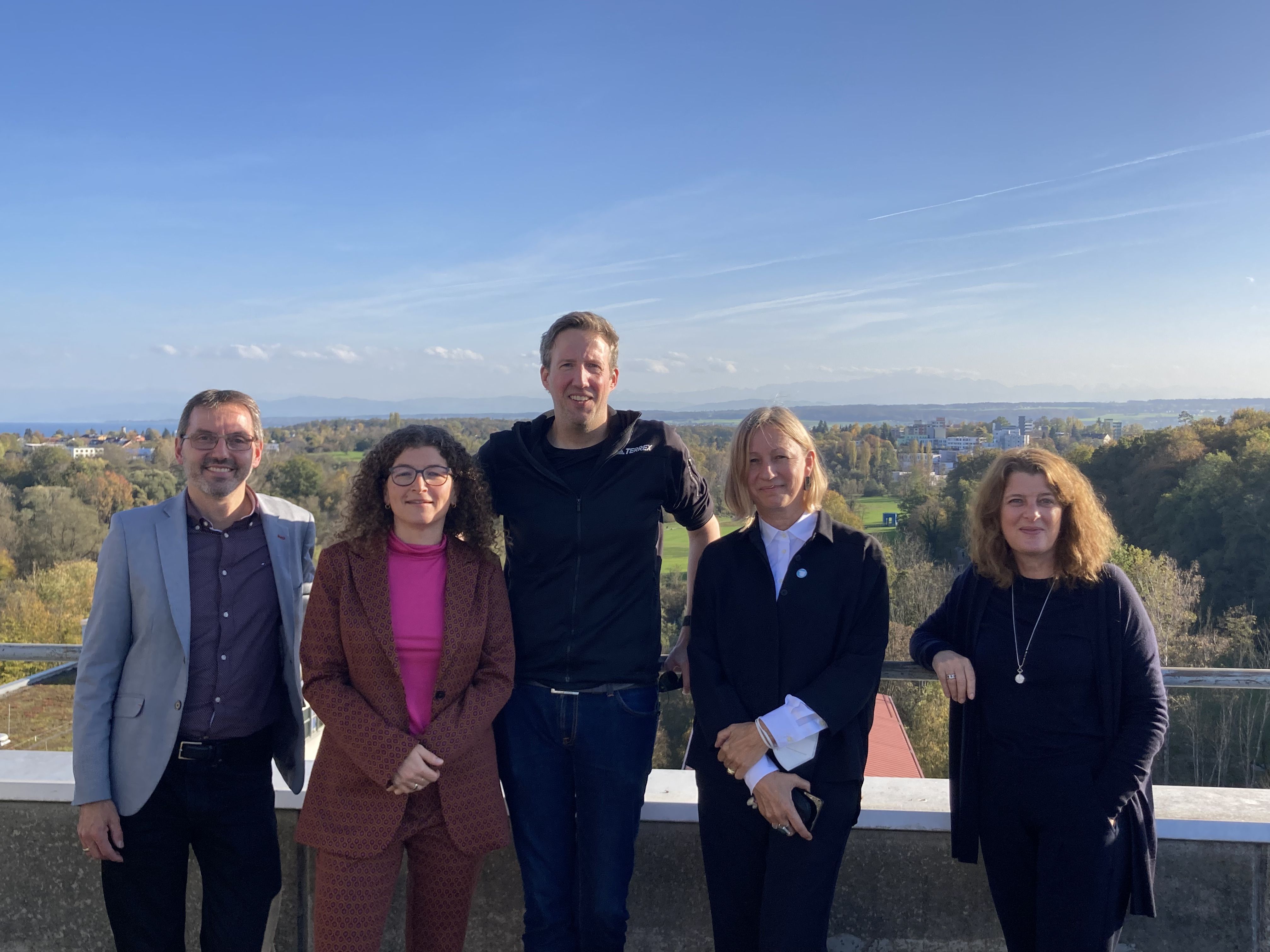
The HUMAN | DATA | SOCIETY
After the successful kick-off in April 2022, the Centre for HUMAN | DATA | SOCIETY has now been established at the University of Konstanz. Across different disciplines, the centre investigates aspects of the data society as well as interactions between humans and data-driven systems.
Data are everywhere and determine all processes of our current and, above all, future lifestyles. Accordingly, the public and politicians have long been discussing the conditions for digitalization in all areas of life. However, a solely data-driven development of technology does not sufficiently take people into account. For this reason, the Centre for HUMAN | DATA | SOCIETY (CHDS) was founded at the University of Konstanz, which will focus on conducting a fundamental and transdisciplinary investigation of the data society from the perspective of different disciplines. In addition to the technical perspective, legal, political, psychological, media cultural, historical, economic and social aspects are considered. "The goal of the centre is to make the often intransparent interactions between people and data-driven systems visible, to reflect on them critically, and ideally to improve them," summarizes Liane Wörner, professor of law at the University of Konstanz who chairs the centre’s board of directors.
By means of a transdisciplinary stocktaking, the participating researchers analyze the current data society and its effects on current developments. The researchers investige which actors are involved in which forms and roles a well as how they interact in socio-technical systems. "The aim is to uncover possible risks of increasing datafication with regard to algorithmically reproductive discrimination, to questions of the rule of law, or even to social justice," emphasizes Beate Ochsner, professor of media studies and member of the board of directors.
The expertise of the Konstanz computer visualization team makes it possible to identify application-specific error analyses in current data-driven systems and, based on this, to develop new interactions between humans and the systems. "It is important to shed light on the need for individual data collections, the impact of data collections and the societal impact of the data analyses," underlines member of the board of directors, Daniel Keim, professor of computer science. The Konstanz researchers also want to examine which data collections do not take place and critically reflect on where, how and why society should datafy, i.e. collect data. "Our research is not intended to stop the process of the data society and does not want to slow down mechanization," says Liane Wörner. Rather, the overarching question is: What kind of data society do we want and how should it be shaped?
On Friday, 25 November 2022, the Science Congress 2022 of the Think Tank Thurgau will take place, which the Centre for HUMAN | DATA | SOCIETY is co-organizing as a scientific partner. In Romanshorn, Switzerland, the Kornhaus venue will host discussions on the topic of "Digitalization and Security". Registration at www.thinktankthurgau.ch/anmeldeformular-wissenschaftskongress-2022/.
The board of directors of the Centre for HUMAN | DATA | SOCIETY
Chair: Liane Wörner, professor of law; board of directors: Beate Ochsner, professor of media studies; Michael Grossniklaus, professor of computer science; Daniel Keim, professor of computer science.
Key facts:
- Founding of the Centre for Human | Data | Society (CHDS).
- Transdisciplinary study of the technical, legal, political, psychological, media-cultural, historical, economic and social aspects of data society.
- The goal is to make interactions between humans and data-driven systems visible, to critically reflect on them, and ideally to improve them.
- On Friday, 25 November 2022, the Science Congress 2022 of the Think Tank Thurgau "Digitalization and Security" takes place, co-organized by the Centre for HUMAN | DATA | SOCIETY as a scientific partner.
